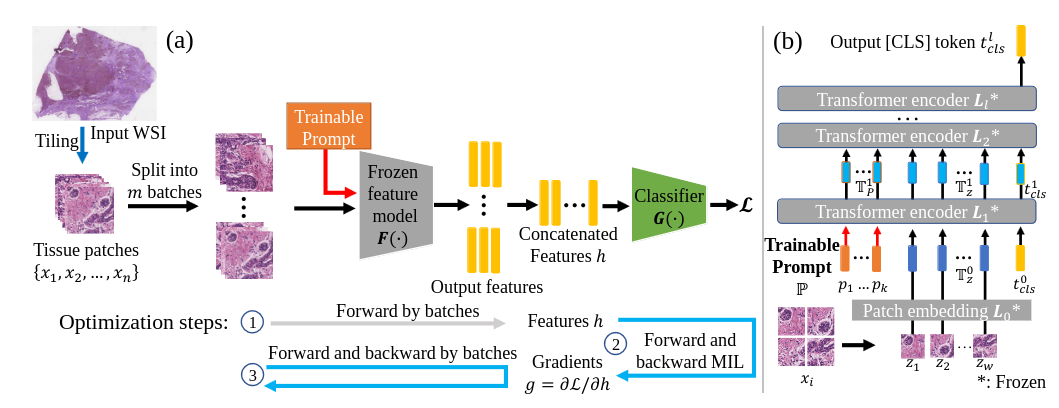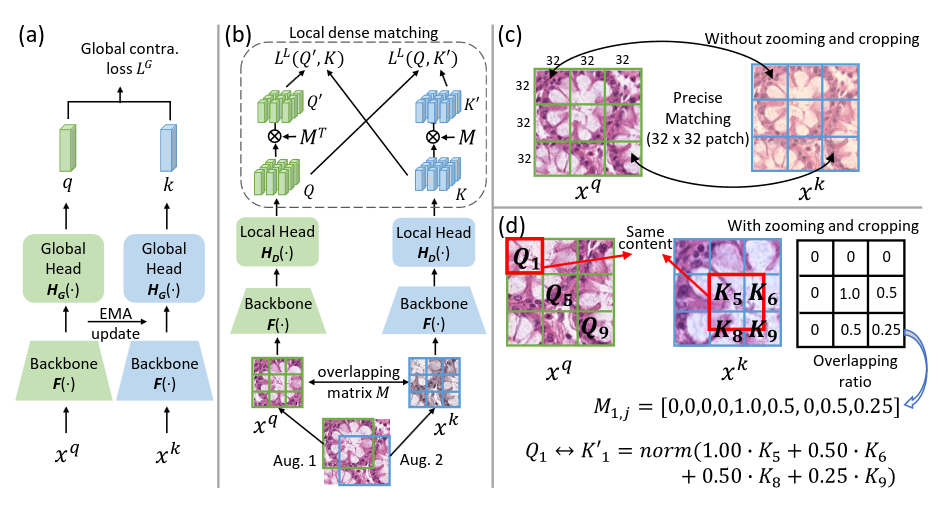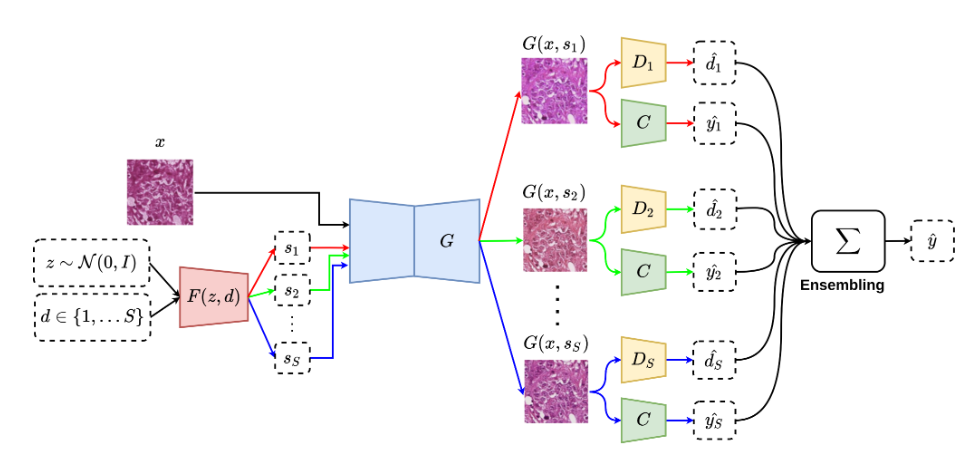computational pathology
Deep Learning methods for digital pathology
Computational Pathology has revolutionized histopathological analysis by leveraging sophisticated computational techniques to augment clinical workflows. Our team is implicated in multiple projects such as Hagnodice, FRQS and HDH, Prism and Archimedes Unit to develop novel methods for processing gigapixel sized digital pathology slides for variety of cancer types.
Selected relevant publications
- In Zhang et. al 2023 we propose a prompt-based MIL for boosting multi-instance learning schemes on digital pathology.

The overview of the method presented on MICCAI 2023 [Zhang et. al 2023].
- In Fillioux et. al 2023 we explore the use of state space models as a multiple instance learner to a variety of problems in digital pathology.

The overview of the method presented on MICCAI 2023 [Fillioux et. al 2023].
- In Mosele et. al 2023 examine the efficacy of T-DXd drug for different HER2 status for metastatic breast cancer patients.

Analysis of the different response of patients with different clusters identified by the digital pathology slides presented in Nature Medicine [Mosele et. al 2023].
- In Zhang et. al 2023 we propose a precise location-based matching mechanism that utilizes the overlapping information between geometric transformations to precisely match regions in two augmentations. We demonstrated very good performance on unsupervised nuclei segmentation of digital pathology.

Overview of the method presented in IPMI 2023 [Zhang et. al 2023].
- In Boyd et. al 2022, we propose a region-guided CycleGAN to provide robust models for stain transfer on the WSI level.

WSI-level resutls of the method presented in MICCAI 2022 [Boyd et. al 2022].
- In Scalbert et. al 2022 we proposed a test time data augmentation for out-of-distribution generalization in histopathology.

Overview of the method presented in MICCAI 2022 [Scalbert et. al 2022].
References
2023
- Structured State Space Models for Multiple Instance Learning in Digital PathologyIn International Conference on Medical Image Computing and Computer-Assisted Intervention, 2023
- Trastuzumab deruxtecan in metastatic breast cancer with variable HER2 expression: the phase 2 DAISY trialNature Medicine, 2023
- Precise location matching improves dense contrastive learning in digital pathologyIn International Conference on Information Processing in Medical Imaging, 2023
- Prompt-MIL: Boosting Multi-Instance Learning Schemes via Task-specific Prompt TuningarXiv preprint arXiv:2303.12214, 2023
2022
- Region-guided cyclegans for stain transfer in whole slide imagesIn International Conference on Medical Image Computing and Computer-Assisted Intervention, 2022
- Test-time image-to-image translation ensembling improves out-of-distribution generalization in histopathologyIn International Conference on Medical Image Computing and Computer-Assisted Intervention, 2022